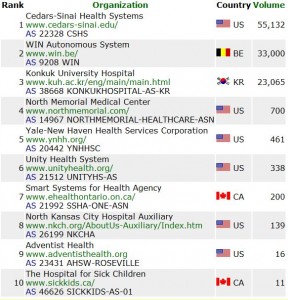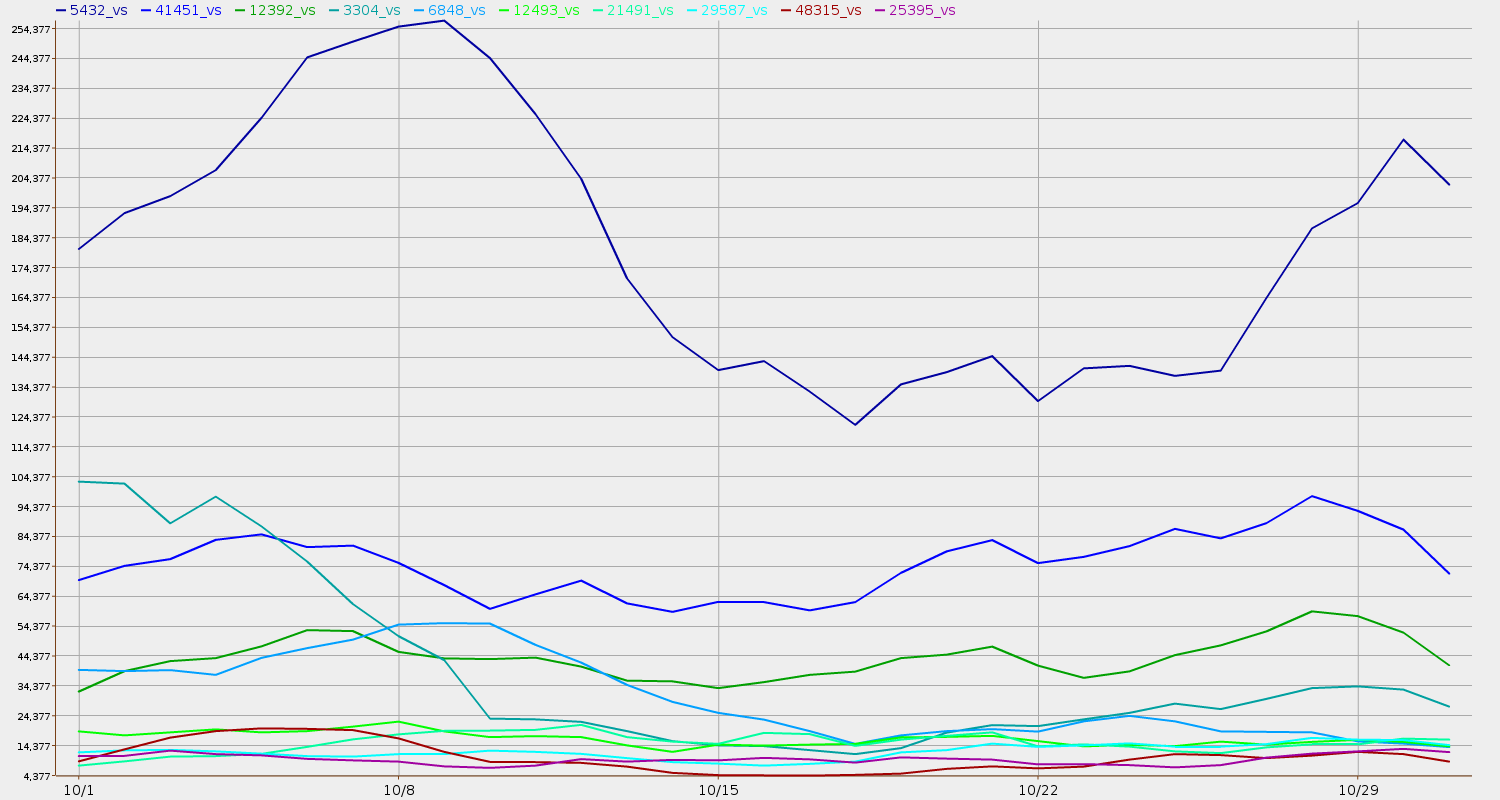The rest of his writeup quotes me quite a bit, and everyone knows I’m quite shy, so please go read his blog!A new resource for spotlighting organizations that are unwittingly contributing to the global spam problem aims to shame junk email havens into taking more aggressive security measures.
SpamRankings.net is a project launched by the Center for Research in Electronic Commerce at the University of Texas at Austin. Its goal is to identify and call attention to organizations with networks that have been infiltrated by spammers.
Andrew Whinston, the center’s director, said the group initially is focusing on health care providers that appear to be infected with spam bots. “Nobody wants to do business with a bank or hospital or Internet hosting company that has been hijacked by spammers,” Whinston said. “It’s an environment in which user data can be stolen or compromised.”
I will add that May data is live now on SpamRankings.net. Also, organizations that do better over time may want to brag, as has happened with a couple of U.S. organizations in May.
Here’s Krebs’ final paragraph:
I applaud this effort, and hope that it gains traction. I remain convinced that the Internet community would benefit from a more comprehensive and centralized approach to measuring badness on the Web. There are many existing efforts to measure reputation and to quantify badness online, but most of those projects seek to enumerate very specific threats (such spam or hacked Web sites) and measure the problem from a limited vantage point. What is lacking is an organization that attempts to collate data collected by these disparate efforts and to publish that information in near real-time.
-jsq



